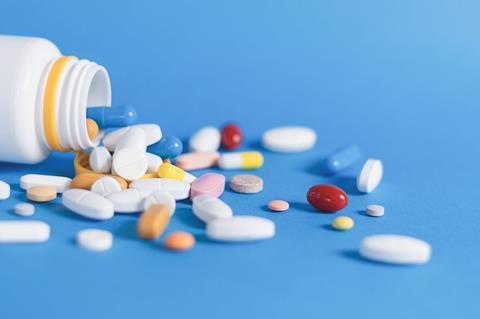Combating Antibiotic-Resistant Bacteria Biopharmaceutical Accelerator (CARB-X) is awarding US$1.75 million to the University of Melbourne at the Peter Doherty Institute for Infection and Immunity (Doherty Institute) to develop an oral therapeutic that restores the activity of workhorse antibiotics used to treat community-acquired bacterial pneumonia (CABP).

Lower respiratory tract infections, including CABP, are among the world’s most deadly communicable diseases. They are estimated to have killed 2.6 million people globally in 2019, and they cause a substantial mortality, morbidity and economic burden for vulnerable people in low-income countries, where they are the second leading cause of death. Patients with CABP struggle to breathe as their lungs fill with fluid, and they can require hospitalization and intensive care treatment.
“Bacteria that cause community-acquired pneumonia are becoming increasingly resistant to antibiotics on the WHO model list of essential medicines, and so we’ve taken a strategy that embraces both the development of new antibiotics and the pursuit of other products that aim to restore the utility of the ones we already have,” said Erin Duffy, PhD, R&D Chief of CARB-X. “Oral antibiotics enable patients to be treated at home, which can reduce healthcare costs and increase access globally, including in low- and middle-income countries where the burden of antimicrobial resistance is highest.”
Antimicrobial resistance
More than 400,000 people globally died in 2019 due to lower respiratory tract infections attributable to drug-resistant bacteria, and even in a high-income country like the US, 22% of CABP cases result in treatment failure due to antibiotic resistance.
The CARB-X award supports the development of PBT2, an ionophore therapeutic originally pursued as a potential treatment to restore brain activity in patients with neurodegenerative disorders, including Alzheimer’s and Huntington’s diseases. Studies found that PBT2 is also able to disarm key pathways involved in mechanisms by which bacteria become resistant to frontline antibiotics, like amoxicillin and doxycycline.
The Australian research team, led by Professor Christopher McDevitt, PhD, Laboratory Head at the Doherty Institute, aims to use the effects of PBT2 on drug-resistant bacteria to restore the ability of common antibiotics to effectively eliminate those bacteria.
Key milestone
University of Melbourne Laureate Professor Sharon Lewin, MD, PhD, Director of the Doherty Institute, said that CARB-X’s generous support to take this research from lab benches to market is an important milestone. “We’re grateful for CARB-X’s support, providing an accelerated pathway for the development of this new therapeutic to render these drug-resistant bacteria susceptible to existing antibiotics again,” said Lewin.
“As a multidisciplinary research institute specializing in infection and immunity, our vision is to improve health globally, and collaborating with like-minded organisations–like CARB-X and their global network of subject matter experts–is crucial to make it happen.”
An estimated 1.27 million people died due to drug-resistant bacterial infections in 2019, a death toll that exceeded HIV/AIDS (864,000) and malaria (643,000) in that same year. CARB-X is building a pipeline of high-value products to prevent, diagnose and treat bacterial infections, including those that have become resistant to antibiotics. CARB-X emphasizes performance characteristics that will allow the broadest use of these products against infections driving the greatest global morbidity and mortality.
Antibiotic pipeline
When CARB-X was founded in 2016, the early-stage antibiotic pipeline was stalled. Since then, CARB-X has supported 92 R&D projects in 12 countries, and CARB-X product developers have made tremendous progress: 18 projects have advanced into or completed clinical trials; 12 remain active in clinical development, including late-stage clinical trials; and two diagnostic products have reached the market. Additionally, at least 9 product developers with active R&D projects have already secured advanced development partnerships which can help support their clinical development after leaving the CARB-X portfolio.
Last year, CARB-X launched new funding rounds to support R&D projects and fill critical gaps in the antibacterial pipeline. These include oral therapeutics to replace the workhorse antibiotics that are failing; vaccines for neonatal sepsis, which kills 2.5 million infants annually; and oral therapeutics, vaccines and rapid diagnostics for gonorrhea. Resistant strains of gonorrhea have evaded all but one existing antibiotic. The University of Melbourne’s PBT2 oral therapeutic is the first project to receive a CARB-X grant as part of the 2022-2023 funding call. Additional projects are under review, and new product developers will be announced this year.







No comments yet